Civic Tech Field Guide
Sharing knowledge and productively growing the fieldTag: Political unit > United Nations - (57)
Showing 57 Results

The UN Public Service Day intends to celebrate the value and virtue of public service to the community; highlight the contribution of public service in the development process; recognize the work of public servants, and encourage young people to pursue careers in the public sector.

Trinidad and Tobago Open Source Program Office
Trinidad and TobagoThis pilot, in collaboration with The University of the West Indies, and UNDP, is...a model for how open-source practices can strengthen digital ecosystems and drive inclusive innovation across the region.

Open-Source AI for Public Services (ITU AI)
Geneva, SwitzerlandThe International Telecommunication Union (ITU)-led multi-stakeholder initiative on Open-Source Generative AI for Public Services aims to develop an end-to-end, open-source implementation framework that enables public sector stakeholders to easily build and deploy their own GenAI solutions using modular, open-source software blueprints.
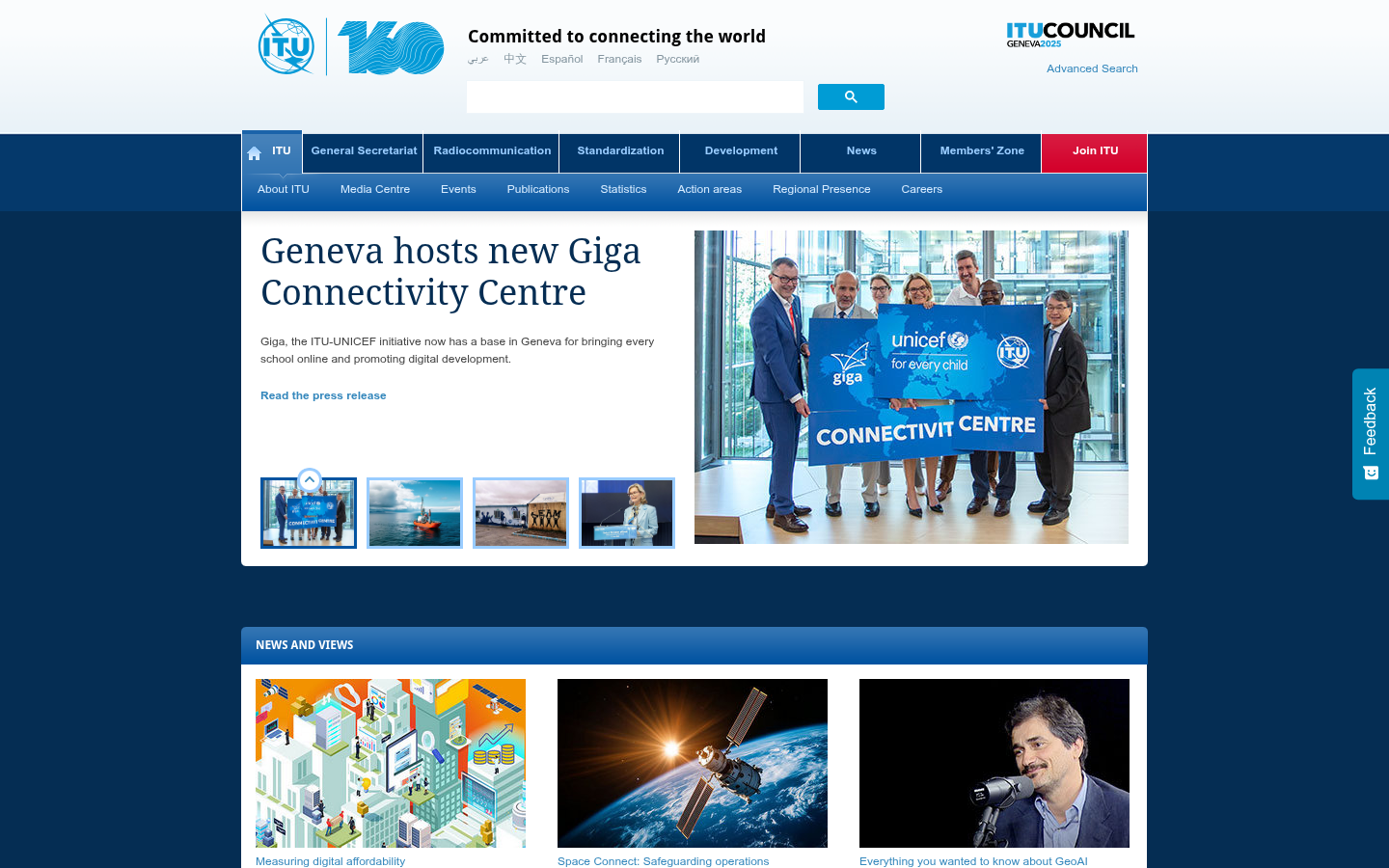
International Telecommunication Union (ITU)
Geneva, SwitzerlandITU is the United Nations specialized agency for digital technologies (ICTs).

Open Source Ecosystem Enabler (OSEE)
Geneva, SwitzerlandThe Open Source Ecosystem Enabler project seeks to empower local and regional public and private actors to effectively adopt open source technologies for delivering digital government services.

ITU Open Source Programme Office
Geneva, SwitzerlandITU Open Source Programme Office (OSPO) is committed to harnessing the power of open-source technologies to empower nations, organizations, and individuals to leverage cutting-edge digital solutions for the sustainable development.

The DPI Approach: A Playbook
India (Bhārat)This DPI playbook is designed as a practical and public resource that low and middle-income countries (LMICs) in particular can utilize in building an inclusive and rights-based DPI.

Humanitarian Action provides a comprehensive overview of the humanitarian landscape by providing both an annual snapshot complemented by analysis, and live data on on humanitarian crises and response.

OCHA carried out two global survey to assess the consequences of the US funding freeze on humanitarian action globally. The first round, in February, looked at the impact of the suspension orders and waivers. The second was launched in March following the announcement of the US grants’ termination, in collaboration with IOM, UNHCR and ICVA.

Agora Citizen Network
FranceWhere citizens converge to exchange and debate ideas. Let’s turn our differences into progress, rather than conflict.

The E-Government Development Index presents the state of E-Government Development of the United Nations Member States.

UNDP Panama Accelerator Lab
Panama City, PanamaPanama’s Accelerator Lab is working to understand how strengthening solid waste management practices in rural municipalities can help create pathways to optimize national recycling strategies and work towards a circular economy.

Portugal Digital Fellowship at United Nations University
Guimarães, PortugalThe envisaged participants of this Capacity Building Programme are high-level officials from developing countries.

United Nations University Operating Unit on Policy-driven Electronic Governance (UNU-EGOV)
Guimarães, PortugalAs a forward-thinking policy-oriented entity, we lead innovation, actively exploring and advocating emerging technologies to transform public service delivery on a worldwide scale.

Chief Digital Office at UNDP
Geneva, SwitzerlandThe Chief Digital Office (CDO) was created in 2019 to enable, accelerate and promote digital transformation within UNDP and throughout its programmatic work.
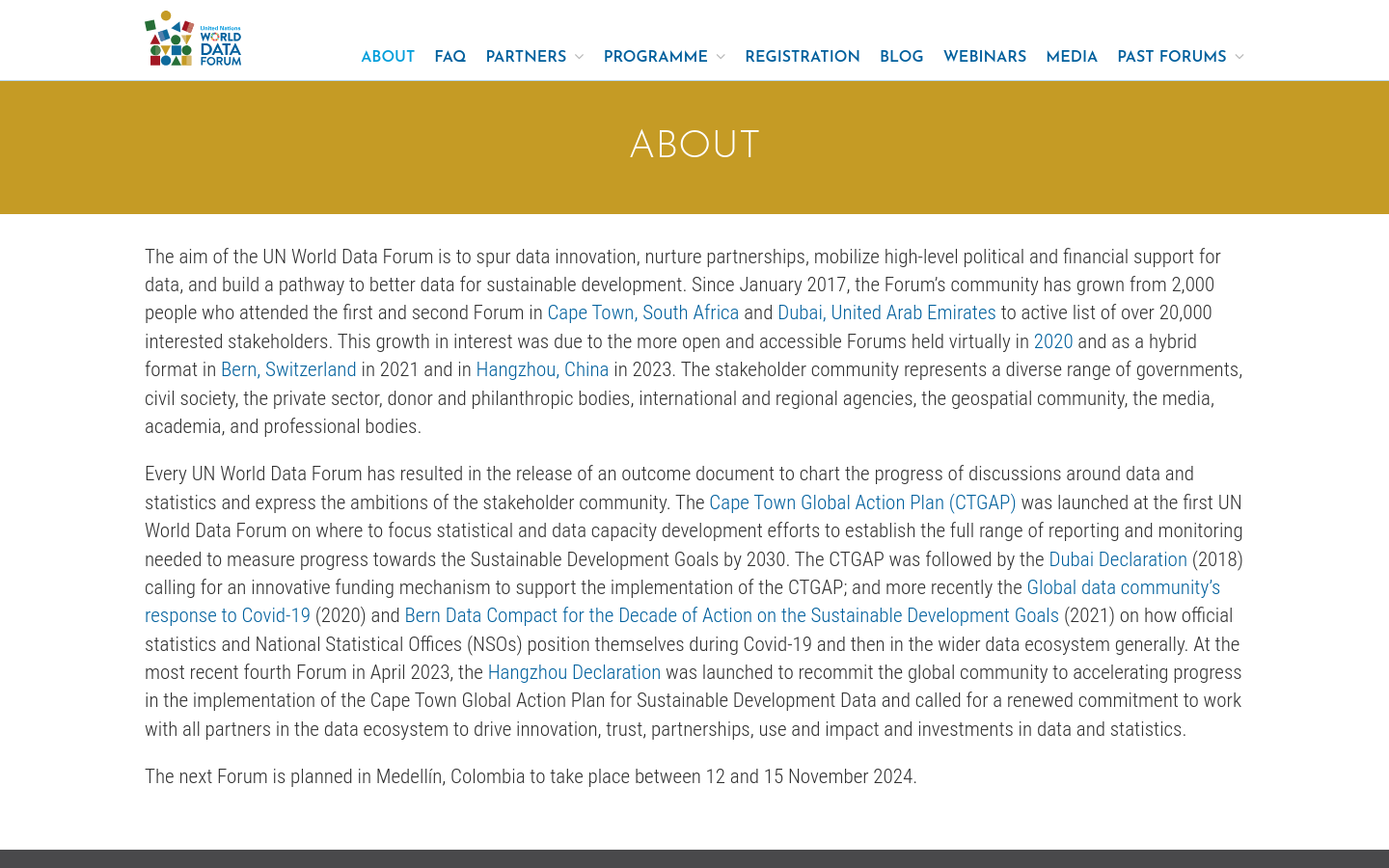
The aim of the UN World Data Forum is to spur data innovation, nurture partnerships, mobilize high-level political and financial support for data, and build a pathway to better data for sustainable development.
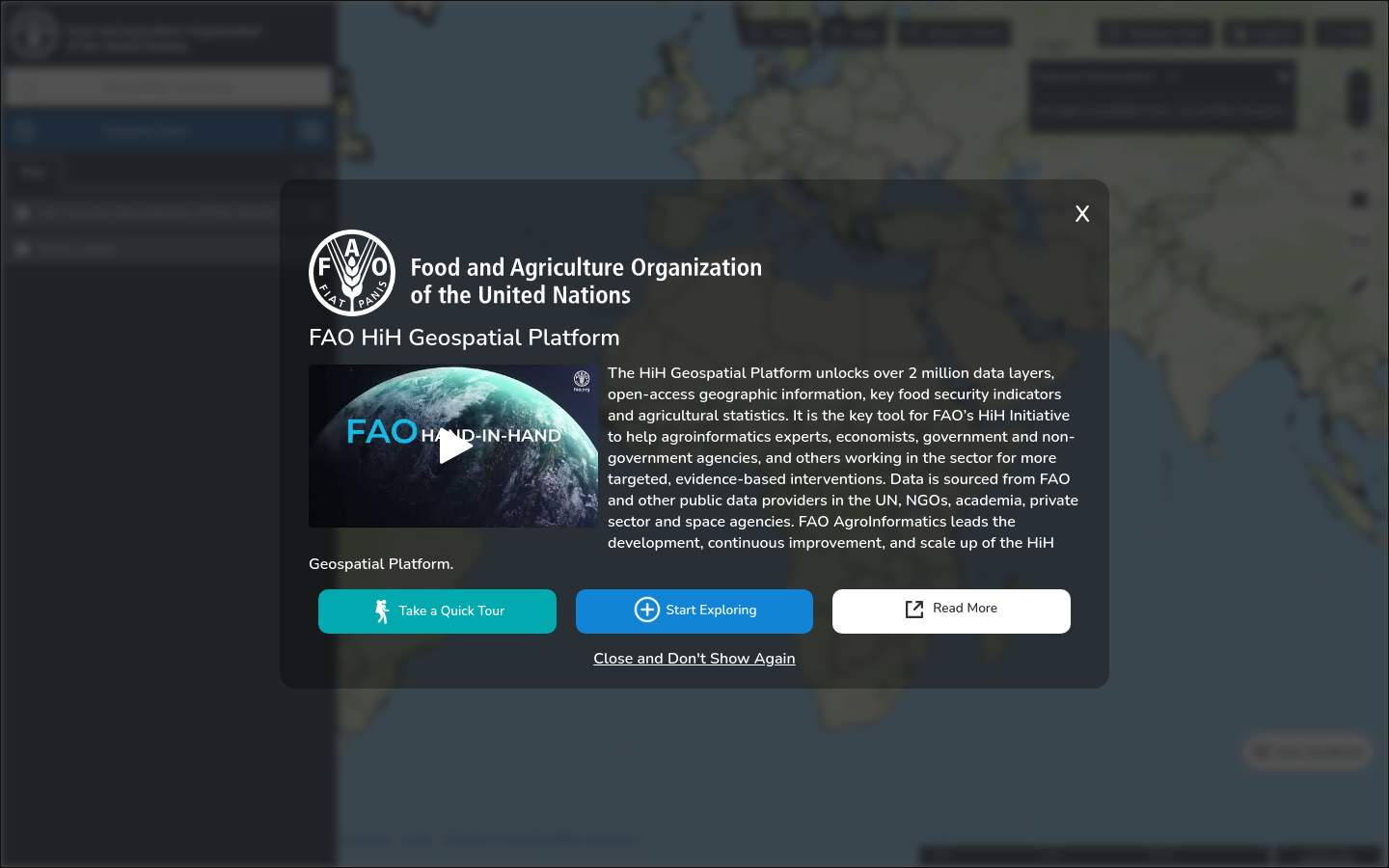
The Hand-in-Hand (HiH) Geospatial Platform is the enabling tool for the HiH Initiative unlocking over 2 million data layers for more targeted, evidence-based interventions.

Innovating public service delivery through Digital Public Goods and Open Source
Geneva, SwitzerlandFree online course at ITU Academy funded by the EU
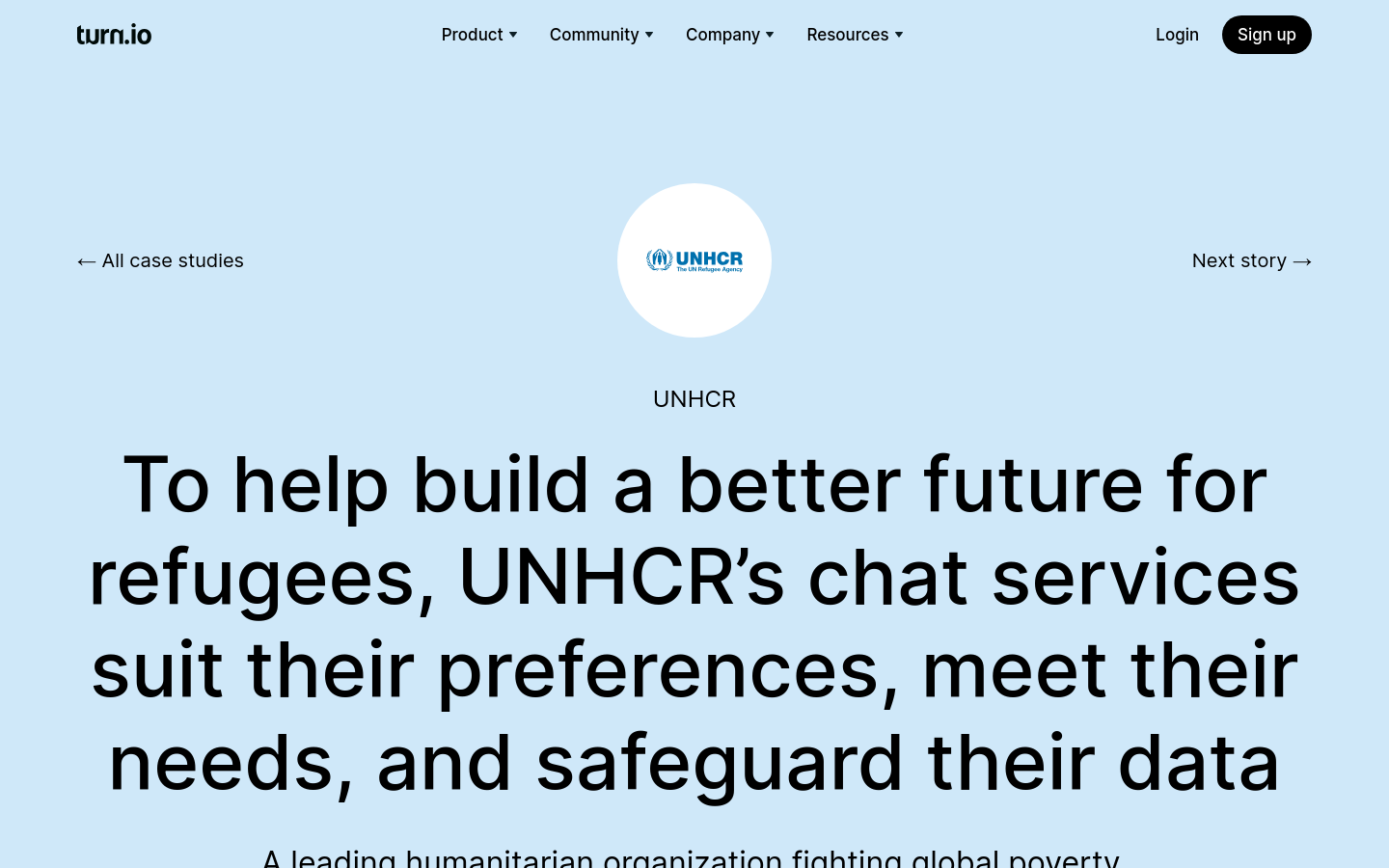
To help build a better future for refugees, UNHCR’s chat services suit their preferences, meet their needs, and safeguard their data

The United Nations Institute for Training and Research (UNITAR) provides innovative learning solutions to individuals, organizations and institutions

The State of Open Humanitarian Data 2024
Humanity Hub, Fluwelen Burgwal, The Hague, NetherlandsA ten-year anniversary retrospective on the Humanitarian Data Exchange, which was accessed by 1.4 million people in 230 countries to download 2.7 million open humanitarian datasets in 2023.

The 2019 Global Multidimensional Poverty Index (MPI) data and publication "Illuminating Inequalities" released on 11 July 2019 shed light on the number of people experiencing poverty at regional, national and subnational levels, and reveal inequalities across countries and among the poor themselves.

ReliefWeb
New York CityInforming humanitarians worldwide

Humanitarian ID
New York CityHumanitarian ID is an authentication service managed by the United Nations Office for the Coordination of Humanitarian Affairs (UNOCHA).

UN HABITAT Digital Cities Toolkit
58 Victoria EmbankmentAn open source Policy Toolkit for cities to develop digital policies that put citizens at the center, tackle Sustainable Development Goals and make Governments more open, transparent, and collaborative.
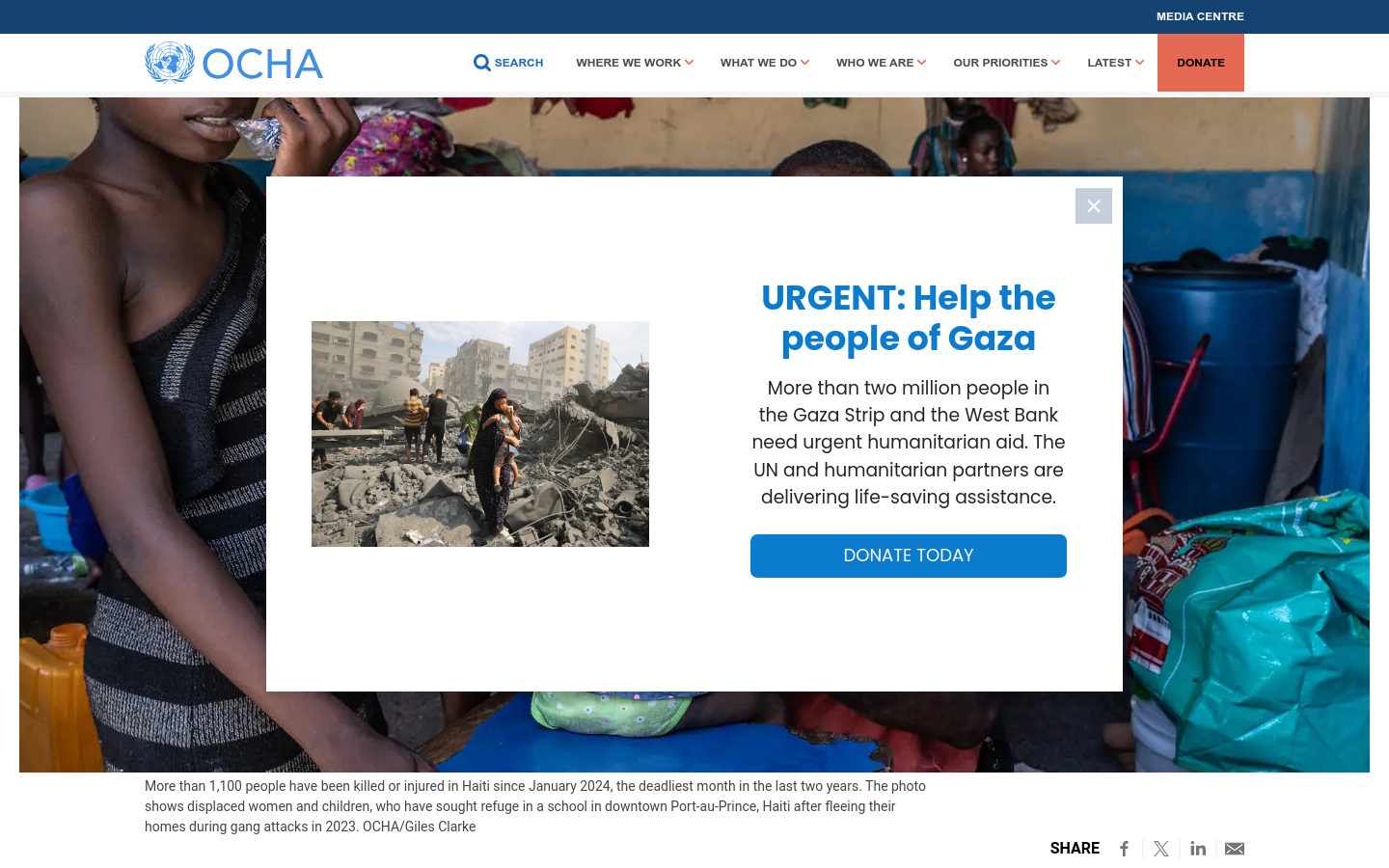
With its partners, OCHA contributes to principled and effective humanitarian response through coordination, advocacy, policy, information management and humanitarian financing tools and services.

Connecting Worlds is an App from UNHCR, the UN Refugee Agency, that facilitates meaningful connections to support the next generation of refugee students.

Oslo Governance Centre
Oslo, NorwayThe Oslo Governance Centre (OGC) is UNDPs dedicated Global Policy Centre for Governance issues. It promotes transformative governance for peaceful, just and inclusive societies.

UN Mappers is a community of mapping enthusiasts collaborating to collect, validate and disseminate geospatial open data in areas where the United Nations carries out field operations with the goal of supporting the decision-making process with more accurate location-based data.

UN General Assembly resolutions on ICTs for Sustainable Development
Geneva, SwitzerlandA UN resolution in favor of ICTs for Sustainable Development

UNDP Transparency Portal
Level 21, One United Nations Plaza, New York NY 10017Open database and map of recipients, donors

We’ve launched the latest WFP Innovation Challenge in search of game-changing innovations addressing the Global Food Crisis.

UNICEF StartUp Lab Ghana
GhanaUNICEF StartUp Lab is an accelerator programme for impactful businesses working to advance the SDGs for children and young people. The programme is led by UNICEF in Ghana, supported by KOICA and implemented by MEST Africa.

A global not-for-profit fund to achieve the catalytic possibilities of digital public infrastructure

To contribute to countering disinformation on COVID-19 and promoting healthy behaviours, UNESCO has produced a series of audio messages that can be freely used by radio stations from around the world.

Pulse Lab Jakarta
JakartaPulse Lab Jakarta is a joint data innovation facility of the United Nations (Global Pulse) and the Government of Indonesia (via the Ministry of National Development Planning, Bappenas).

Faced with the choice between privacy and safety on the Internet, between freely expressing themselves and the ethical use of information, the media and technology – women, men and young boys and girls need new types of competencies.

AI for Good Summit
Geneva, SwitzerlandDriven by the rapid progress in Artificial Intelligence (AI) research, intelligent machines are gaining the ability to learn, improve and make calculated decisions in ways that will enable them to perform tasks previously thought to rely solely on human experience, creativity, and ingenuity

Atlas of Urban Expansion
New York University, New York, NY, USAMuniphase research project exploring urban expansion and boundaries.

"The United Nations is a diplomatic and political international organization with the intended purpose of maintaining international peace and security, developing friendly relations among nations, achieving international cooperation, and serving as a center for coordinating the actions of member nations." - Wikipedia

The United Nations Foundation is a charitable organization headquartered in Washington, DC, that supports the United Nations and its activities.











